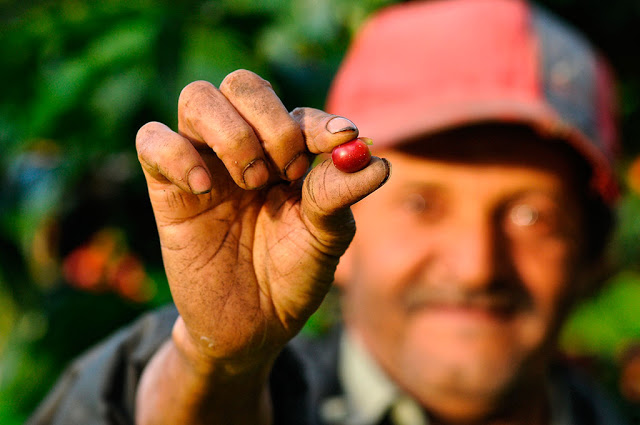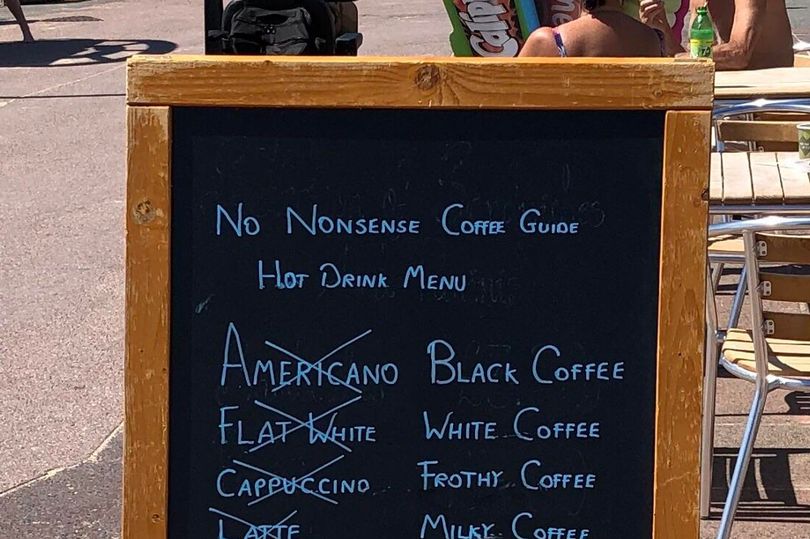Coffee trade in addition to fair trade, partners, fair buying and selling

Professional coffee knowledge exchange more coffee bean information please follow the coffee workshop (Wechat official account cafe_style)
"who knows the fragrance in the cup, every grain is the hard work of the farmers." whenever we taste a cup of coffee, we discuss nothing more than the aroma, flavor, origin, and so on, but in fact, the most important thing behind it is the hard-working coffee farmers. In the past, the hard work of farmers was not taken seriously, and their exploitation led to generations of poverty, and no matter how hard they tried, they could not turn around. But over the past decade, with the efforts of willing people and the growing emphasis on the variety of coffee, the way to protect farmers' transactions has been paid more and more attention, and fair trade is the most common thing to hear. It's just that Fairtrade is not the only one that can protect farmers (and in fact, there is a lot of controversy about Fairtrade). This time, the editor will introduce a few more transaction modes with moral guarantee.
Direct trade
As the name implies, coffee roasters communicate and trade directly with producers, such as intellectual Coffee (Intelligentsia) and counter-Cultural Coffee (Counter Culture) from the United States, which are coffee brands conducted by direct trade, and all have their own direct trade certification. The intellectual Coffee Club examines whether farmland conforms to their friendly environmental norms, including the use of herbicides, pesticides, wastewater treatment and forest vegetation maintenance. the norms will also have different standards according to different growing environments (so intellectual coffee is not all organic!) On the other hand, counter-cultural coffee has set a floor price (like Fairtrade) and quality standards, and the producers who cooperate with them are not limited to being members of cooperatives, so small farmers are not afraid of opportunities.
Partner
The ongoing partnership between coffee producers and roasters usually cooperates with each other for improved quality and acquisition prices that are more conducive to sustainability. The most famous partnership program is the Red Cherry Project (Operation Cherry Red). The Dutch coffee bean merchants (Trabocca) will first select specific cooperatives in the producing areas (currently mainly in Ethiopia) to provide funds, equipment and technology to harvest 100% red cherries as the target, select specific quality coffee beans (the cup score threshold is 88 points), if the cup test results exceed the threshold, the Dutch coffee bean merchants will also increase the purchase price.
Fair sale
Unlike Fairtrade, fair trading has good transparency and traceable information on each transaction and pays a higher price to the producer. This model does not have an authentication system to define each transaction, but all participants work together to complete the transaction in a good direction, and third-party organizations are sometimes involved.
The purpose of these trading models is to allow roasters to buy more coffee beans that are easy to trace, reduce unnecessary middlemen in the supply chain, and pay higher prices to reward producers who are willing to produce higher-quality coffee beans.
Of course, these models will inevitably be subject to some criticism, after all, the lack of proof of a third-party certification organization system, it is difficult to confirm whether the roaster is really as practical as these models to purchase coffee beans.
If you want to strike a balance between a friendly environment and protecting farmers' income when enjoying coffee, you have these options in addition to Fairtrade, which can even save you some money. If you can't identify it, you can also check the packaging label. If you have detailed traceability information such as the name of the producer, the cooperative, the name of the disposal plant, etc., it is possible for the producer to get a better income.
END
Important Notice :
前街咖啡 FrontStreet Coffee has moved to new addredd:
FrontStreet Coffee Address: 315,Donghua East Road,GuangZhou
Tel:020 38364473
- Prev

Luckin Coffee became the designated coffee partner of the 2019 China Supercar Championship.
Professional coffee knowledge exchange more coffee bean information please follow the coffee workshop (Wechat official account cafe_style) June 29-30, 2019 China Super Sports car Championship (referred to as China GT) Shanghai station passionate start, designated coffee partner Luckin Coffee flash store simultaneously unveiled, to provide the audience with high-quality coffee drinks and healthy light food services. Chinese supercar brocade
- Next

"Coffee Guide without nonsense" became an unexpected hit! Do you really know nothing about coffee, or do you have a dark sense of humor?
For more information on coffee beans, follow the Coffee Workshop (official Wechat account cafe_style) Coffee has become one of the most popular drinks in the world for many years. Many people choose to have a cup of coffee when they feel sleepy, or when they need to socialize. Anyway, even the coffee culture
Related
- What is the difference between Indonesian Sumatra Mantinin coffee and gold Mantinin? How to distinguish between real and fake golden Mantelin coffee?
- What does bypass mean in coffee? Why can hand-brewed coffee and water make it better?
- Unexpected! Ruixing Telunsu lattes use a smoothie machine to foam milk?!
- % Arabia's first store in Henan opens into the village?! Netizen: Thought it was P's
- Does an authentic standard mocha coffee recipe use chocolate sauce or powder? Mocha Latte/Dirty Coffee/Salty Mocha Coffee Recipe Share!
- What is the difference between Vietnam egg coffee and Norway egg coffee? Hand-brewed single product coffee filter paper filter cloth filter flat solution!
- What is the difference between sun-cured and honey-treated coffee? What are the differences in the flavor characteristics of sun-honey coffee?
- How to make Italian latte! How much milk does a standard latte use/what should the ratio of coffee to milk be?
- How to make butter American/butter latte/butter Dirty coffee? Is hand-brewed coffee good with butter?
- Is Dirty the cold version of Australian White? What is the difference between dirty coffee/decent coffee and Australian white espresso?

